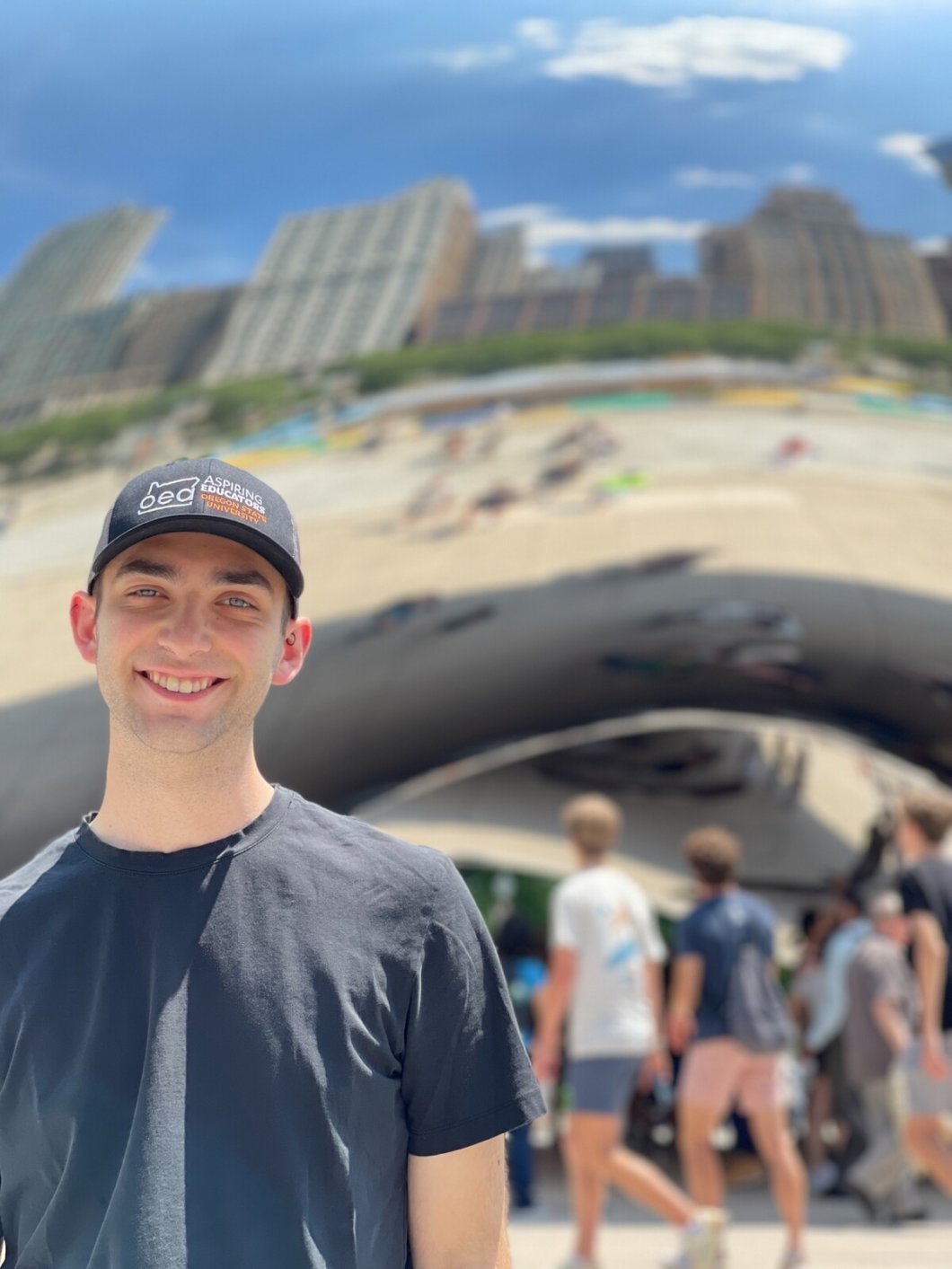District/College: Corvallis School District / Oregon State University
Job Assignment/Position: Aspiring Educator

Local Association: Students via Oregon State University
Years of Educator Experience: 0-1
What are three ways you have actively elevated equity?
- Pushed/ing for Aspiring Educator representation in the OEA leadership across identities
- Creating spaces to discuss tension/ignorance surrounding racial inequality in Aspiring Educator chapter meetings
- Building no-cost structures for aspiring educators to be in K-12 schools, gain classroom experience, and have mentorships with union members
What is your equity stance?
I believe equity is a practice, not an “achievement,” and has no limit in the form it can take. Equity is coming from a place of love, not fear, and is full of invitations, not assumptions. I often feel that mainstream culture, especially in education, is the antithesis of planning and acting with equity in mind, but I’ve learned that at the heart of this problem is pain with and within ourselves. Most of the population is disconnected from themselves, inherently fostering misunderstanding and complicated relationships with others, especially those seen as “others.” Equitable practice is most easily done when we are in deep connection with ourselves and our very complex inner parts. If we hate or reject one or more of the parts within us, that anger will show up in our external world with populations, people, or things that resemble our unloved inner part(s). This can be seen in transphobia, how trans people have the power to represent liberation from social constructs, yet they are attacked by people who feel like that freedom is unattainable for them.
I currently approach equity by confronting myself. I address the biases I’ve created out of fear, I connect with the inner parts and younger selves that I’ve rejected, and I work on loving all of my self. My results look like having stronger emotions at injustices; being angry, looking for knowledge to confront it myself, and then forming action that’s within my control and utilizes something I’m passionate about.
What is your favorite social justice quote?
Love is an expression of power we can use to transform our world.
-Erika Huggins
Can you share one equity focused resource or student read that you recommend?
No Bad Parts: Healing Trauma and Restoring Wholeness with the Internal Family Systems Model by Richard Swartz. Although this can be seen as a “self-help book,” the philosophy of the content can be applied to our work with students and in connections with friends, family, and strangers. No Bad Parts brings into awareness a unique lens for equity work that allows readers to appreciate and understand each other. We must look to mend our relationship with ourselves before we can authentically show up in relationship for others.